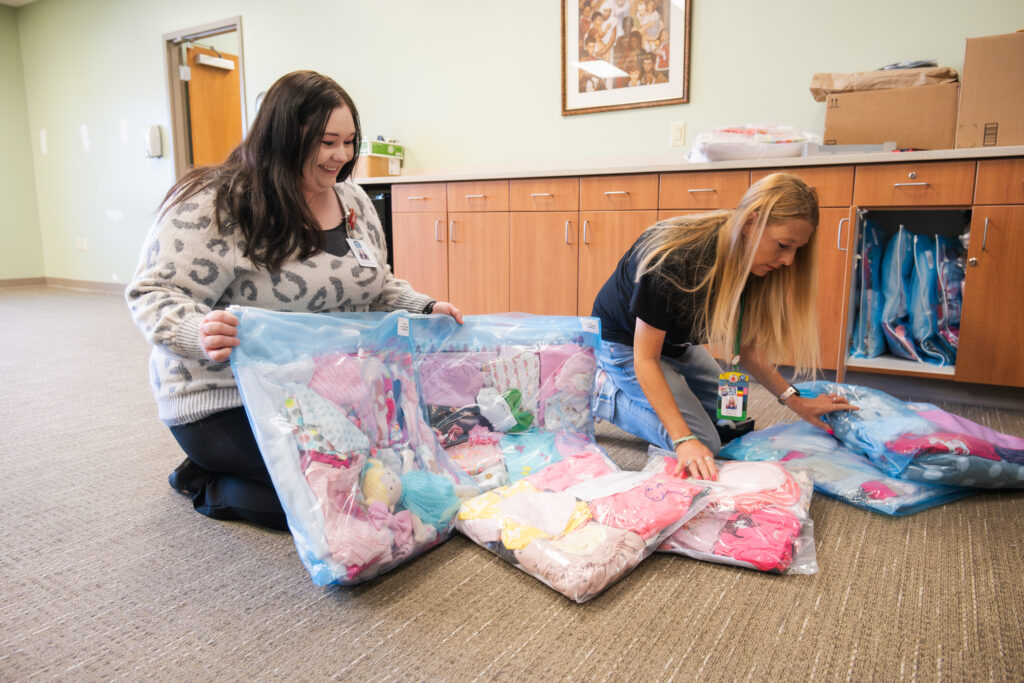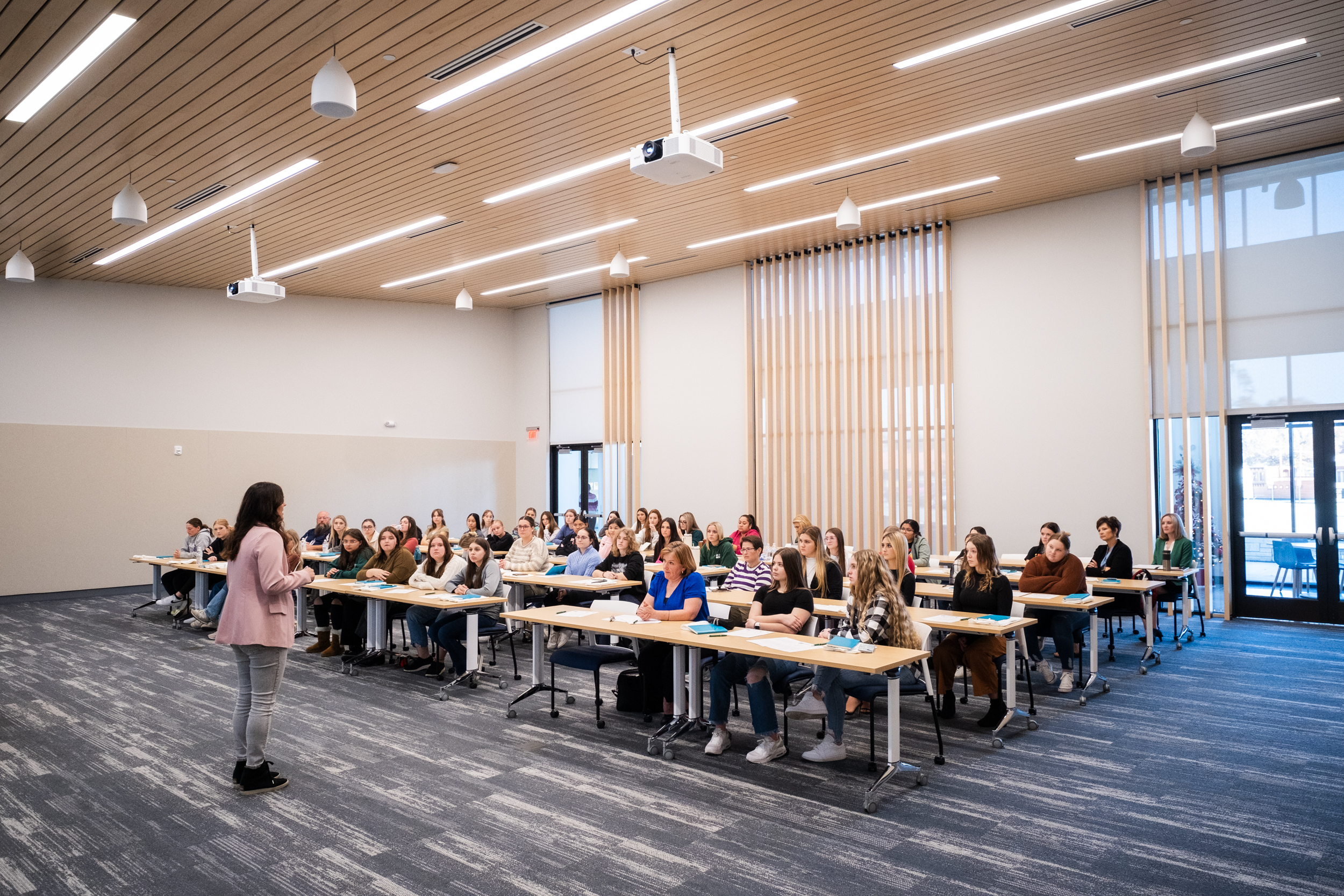The Community Foundation of Southeast Kansas recently announced that the Community Health Center of Southeast Kansas received grants for children’s clothing, diapers, and a bilirubin monitor totaling $13,538.43. CHC/SEK’s subsidiary, Inspire Health, was also awarded grant funds to help promote health careers.
The CFSEK hosts individual charitable funds created by donors who have a passion for giving back to their community. Grants from these funds assist people throughout Southeast Kansas and beyond. Call the Foundation at 620-231-8897 with questions about the Community Foundation.
Helping improve newborn jaundice
The 2023 Rita J. Bicknell Women’s Health Fund recently supported CHC/SEK’s Keeping Baby in the Pink grant of $8,588.43 to purchase a transcutaneous bilirubinometer, used to detect newborn jaundice and measure bilirubin.
More than 80% of newborns are born with jaundice. Tests to detect jaundice and measure bilirubin levels include a physical exam and, traditionally, a laboratory test that requires collection of blood via a heel or venous puncture, a process that generates tears from the baby (and an occasional parent). Jaundice is the most common cause of hospital readmission with newborns and, if untreated, can be toxic to the nervous system, potentially causing brain damage.
With the new instrument, testing bilirubin levels is quick and painless. The instrument is typically rubbed across the baby’s forehead (like an external thermometer), which instantly records the bilirubin level within 10 seconds, measuring the reflection of a special light shone through the skin.
Giving children a week’s worth of clothes
Unlike other basic needs such as housing, food, and medical care, private and public programs do not typically cover clothing. Through CHC/SEK, a small group of Baby4Baby volunteers are doing the huge job of collecting, cleaning, sorting, and packaging children’s clothing for CHC/SEK children in need. CHC/SEK received a grant of $3,450 through the CFSEK General Funds to help clothe children in need.
Baby4Baby was created to go alongside the at-risk mothers program in 2010. Each year, they send out hundreds of packets, each with a week’s worth of clothes. The little clothes — from size preemie to size five toddler — are packaged for infants and children who visit CHC/SEK.

Bringing diapers to babies in need
In their first year of life, babies use approximately 2,500 – 3,000 diapers; on average, diapers cost from $0.20 to $.30 per diaper. Parents can expect to spend about $500-$900 annually, not including diaper supplies like wipes. One in three families experience a diaper shortage of around 50 diapers a month. Diapers cannot be purchased with Supplemental Nutrition Assistance Program (SNAP) benefits.
The Southeast Kansas Diaper Stock was created to bridge the diaper gap in Crawford County. The diaper stock is a collaboration of local partners who came together with a common purpose — to get babies clean diapers. CHC/SEK was involved in the project’s inception and recently absorbed the program under its umbrella. Currently, the diaper stock serves over 300 families each month. Through CFSEK’s 2023 Future Fund Giving Circle, the Southeast Kansas Diaper Stock received $1,500 to purchase diapers.
Inspiring future healthcare workers
CHC/SEK’s subsidiary, Inspire Health, was awarded grants to purchase anatomy models and health resources for students through the CFSEK General Funds Grant. Sparking student interest in health and health careers may inspire the next generation of health professionals and improve health in the area. Students in southeast Kansas live in an unhealthy, poor area facing a health professional shortage. These factors make it essential that students be provided with opportunities to learn about their health and potential health careers. Students will touch, move, explore, question, and investigate various anatomy models and health materials by providing traveling anatomy models and resources.
Through the Rita J. Bicknell Women’s Health Fund, Circle of Friends Giving Circle, Inspire Health provided student notebooks and presentation materials for the conference Inspiring Women: A Health Career Day for Female High School Students.
They learned about healthcare careers that support women, presented by women. Seeing and interacting with women in healthcare gives young women an opportunity to imagine themselves one day fulfilling these much-needed healthcare roles. The focus being two-fold, presenters discussed their career and career path and health topics important to women. For example, while presenting on imaging careers, the session will include information about breast health.
Students learned from female providers in the areas of chiropractic, physical therapy, nursing, nutrition, behavioral health, and imaging. The more opportunities young women have to learn about their health, the more empowered they become to advocate for their healthcare needs.


